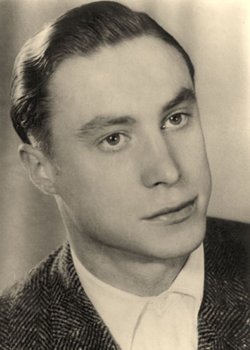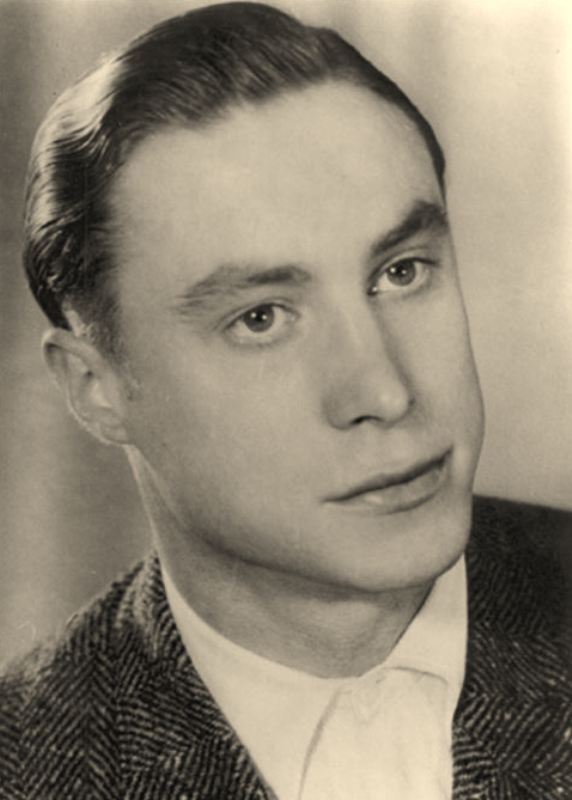In Wesel, he attended elementary and high school. He was also active in the Catholic Youth Movement and Bund Neudeutschland. After graduation, he was drafted into the Reich Labor Service "Reichsarbeitsdienst".
During the winter of 1939/40, Heinz suspended his Medical studies at the University of Münster. In October of 1940, he was drafted for war service. For his merits on the Eastern Front in 1941 and 1942, he was awarded the Iron Cross and the Ostmedaille. To resume his medical studies, he returned to Münster in May 1942. In November 1942, he was promoted to medical sergeant of the reserve. During rescue work, during an air raid on Münster, he suffered a serious head injury by a shrapnel. For his efforts, he was awarded the Wound Badge "Verwundetenabzeichen".
In July 1943, Heinz was approved for leave to prepare for his exam. One day before the exam, his leave was canceled due to an error in the timetable and he had to report to the office. However when he reported to his post, he was informed that there was a mistake and that he had come in vain. Heinz, who had already canceled his other appointment was furious and let himself go completely. He started shouting at the poor scheduling, the ruthless command of the Hitler regime, the corrupt party leadership, militarism and the whole National Socialist movement and their leader clique. In an unguarded moment, he stated that throughout Munster there were not enough lampposts for the Nazis and the army leadership to hang from. And then, with his eyes on a crucifix on one of the walls in the room he stated: "As long as this God lives, He will ensure that the trees do not grow to heaven from here."
Although the two main witnesses were in line with each other in order to further conceal the whole incident, Heinz was denounced in March 1944 by one of these witnesses during a celebration of his Nazi leadership and in April 1944 before the military central court in Berlin-Charlottenburg. The proceedings were interrupted, due to an air raid. Although Heinz repeatedly had opportunity to escape, during the two-hour alarm, he refused to do so for fear of reprisals against his family. He was declared on the same day on charges of "sedition" for military unworthy of civil rights for life forfeited and condemned to death.
After the verdict Heinz was taken into custody and deported to the military prison in Berlin, where he awaited execution in June 1944. Clemency was rejected because of loyalty to the Catholic Church. While in custody in Berlin, he prepared himself thoroughly for death, and fully embraced his Catholic faith.
On 29 June 1944, Heinz Bello was shot at the shooting range in Tegel, by a firing squad of the Wehrmacht. He was buried first on the Sankt Hedwig Cemetery in Berlin, then in 1960, his remains were transferred to Wesel. In 1966, his remains were exhumed and on 3 September 1966, they were given a final resting place in the crypt of the Xantener Dom, besides Karl Leisner and Gerhard Storm.
In Wesel, he attended elementary and high school. He was also active in the Catholic Youth Movement and Bund Neudeutschland. After graduation, he was drafted into the Reich Labor Service "Reichsarbeitsdienst".
During the winter of 1939/40, Heinz suspended his Medical studies at the University of Münster. In October of 1940, he was drafted for war service. For his merits on the Eastern Front in 1941 and 1942, he was awarded the Iron Cross and the Ostmedaille. To resume his medical studies, he returned to Münster in May 1942. In November 1942, he was promoted to medical sergeant of the reserve. During rescue work, during an air raid on Münster, he suffered a serious head injury by a shrapnel. For his efforts, he was awarded the Wound Badge "Verwundetenabzeichen".
In July 1943, Heinz was approved for leave to prepare for his exam. One day before the exam, his leave was canceled due to an error in the timetable and he had to report to the office. However when he reported to his post, he was informed that there was a mistake and that he had come in vain. Heinz, who had already canceled his other appointment was furious and let himself go completely. He started shouting at the poor scheduling, the ruthless command of the Hitler regime, the corrupt party leadership, militarism and the whole National Socialist movement and their leader clique. In an unguarded moment, he stated that throughout Munster there were not enough lampposts for the Nazis and the army leadership to hang from. And then, with his eyes on a crucifix on one of the walls in the room he stated: "As long as this God lives, He will ensure that the trees do not grow to heaven from here."
Although the two main witnesses were in line with each other in order to further conceal the whole incident, Heinz was denounced in March 1944 by one of these witnesses during a celebration of his Nazi leadership and in April 1944 before the military central court in Berlin-Charlottenburg. The proceedings were interrupted, due to an air raid. Although Heinz repeatedly had opportunity to escape, during the two-hour alarm, he refused to do so for fear of reprisals against his family. He was declared on the same day on charges of "sedition" for military unworthy of civil rights for life forfeited and condemned to death.
After the verdict Heinz was taken into custody and deported to the military prison in Berlin, where he awaited execution in June 1944. Clemency was rejected because of loyalty to the Catholic Church. While in custody in Berlin, he prepared himself thoroughly for death, and fully embraced his Catholic faith.
On 29 June 1944, Heinz Bello was shot at the shooting range in Tegel, by a firing squad of the Wehrmacht. He was buried first on the Sankt Hedwig Cemetery in Berlin, then in 1960, his remains were transferred to Wesel. In 1966, his remains were exhumed and on 3 September 1966, they were given a final resting place in the crypt of the Xantener Dom, besides Karl Leisner and Gerhard Storm.
Sponsored by Ancestry
Advertisement
Advertisement



